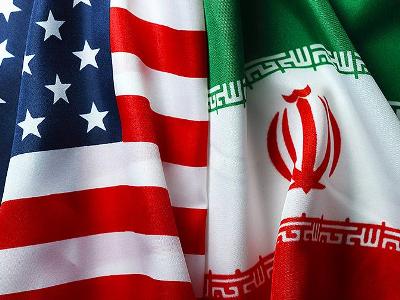
(Photo: Agencies)
WASHINGTON, June 20 (Xinhua) -- The shoot-down of a US military drone by Iran on Thursday further fueled the ongoing tension between Washington and Tehran, raising concerns about another military conflict in the war-torn region.
The US Central Command (CENTCOM) said Thursday that an American unmanned aircraft was shot down by an Iranian air defense system while operating in international airspace at approximately 2335 GMT on June 19.
A US Navy RQ-4 Global Hawk flying over the Gulf of Oman and the Strait of Hormuz on a surveillance mission in international airspace was shot down by Iran, Joseph Guastella, commander of US Air Forces CENTCOM, said in a statement.
"This was an unprovoked attack on a US surveillance asset," Guastella added.
However, Hossein Salami, chief commander of Iran's Islamic Revolution Guards Corps (IRGC), said that the US drone downed in the southern part of the country had crossed Iranian borders.
Iranian Foreign Minister Mohammad Javad Zarif tweeted later that Iran has recovered debris of the downed US drone in the country's territorial waters.
This incident came days after the Pentagon accused Iran of attempting to shoot down a US MQ-9 Reaper drone as it was flying over one of the two crippled tankers, but failed.
Choosing to shoot down a Global Hawk drone, not a more ubiquitous and cheaper Reaper drone, indicated that Tehran hoped to send a stronger signal of its displeasure with recent US actions in the region, Erik Lin-Greenberg, a fellow at Stanford University's Center for International Security and Cooperation, wrote in a piece on Foreign Policy website.
President Donald Trump on Thursday described the shoot-down of the US drone as a "big mistake" by Iran.
"Iran made a very bad mistake," Trump told reporters at the Oval Office, adding that the US drone was shot down by someone "loose and stupid."
Trump denied the speculation that his aides were pushing him to war, but made it clear to reporters that the shoot-down of the drone was "a new wrinkle" that the United States would not tolerate.
For his part, Salami noted that Iran is not seeking war with any country, but is fully prepared to confront any aggression.
This incident further inflamed the ongoing tensions between Washington and Tehran, especially in the context of the upgrading of US military posture in the Middle East in recent weeks.
In early May, the United States deployed the Abraham Lincoln aircraft carrier group, bombers, the amphibious transport dock and Patriot air defense system to the region.
The Pentagon later announced it would send to the Middle East 1,500 US troops along with Patriot air defense systems, drones and fighter jets, a so-called "prudent response to credible threats from Iran."
In the wake of the attack on two oil tankers in the Gulf of Oman, the Pentagon earlier this week authorized the deployment of about 1,000 additional troops to the region for "defensive purpose."
Even though both the Trump administration and the Iranian government have repeatedly claimed that they do not seek conflict, lawmakers and analysts here worried that the US response to the drone incident might ultimately trigger a military showdown between Washington and Tehran.
"I told the president that these conflicts have a way of escalating," Senate Minority Leader Charles Schumer told reporters after his meeting with Trump late Thursday. "The president may not intend to go to war here, but we're worried that -- and the administration may bumble into a war."
Barbara Slavin, director of the Future of Iran Initiative at the Atlantic Council, warned in an article that the escalatory spiral in the region would continue with potential disastrous consequences if Washington decides to strike back at Iran for the downing of the US drone.
One day earlier, Eliot Engel, chairman of the House Committee on Foreign Affairs, made clear to US Special Envoy for Iran Brian Hook during a congressional hearing that "military action against Iran without the approval of Congress is absolutely not an option."
The United States has squandered a disproportionate share of its time and resources on the Middle East over the past three decades, and a war of choice with Iran would compound this strategic error, said Richard Haass, president of the Council on Foreign Relations.
Trump administration's maximum pressure campaign against Iran has been a "maximum failure," Slavin argued. "It is time for diplomats to meet to discuss ways of getting out of this mess."


